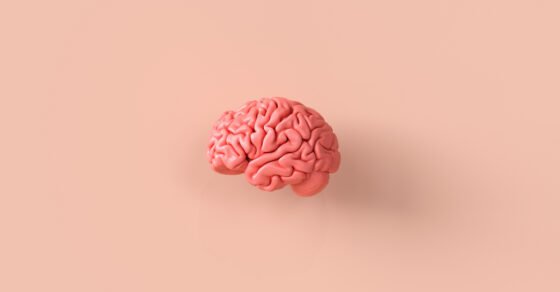By David Stephen
Sedona AZ — How much does an individual know about something and how many problems about that thing can the individual solve? It is possible that the more someone knows about something the likelier it is to solve problems around that thing. This indicates that intelligence means how to use what is known. Or, if something is in memory, or in a location in the brain, how it is used [or how relays proceed] means intelligence.
How much can an individual know about everything and how much of every problem can an individual solve? There are several experiences in life where individuals know what to do, solving low-medium-complex problems. There are, however, several cases where knowing does not guarantee possibilities to solve problems.
Why is this the case? The question of human intelligence is probably a colossus of this era. Why do individuals know less about everything? Or, why can’t humans know everything about everything knowable or discovered? Also, why can’t humans solve all encountered or desired problems?
The central place to seek answers around these questions is the brain. How does human memory work [say] to know? How does human intelligence work [say] to solve? The usefulness, capabilities, threats and unknowns about artificial intelligence are directly at competition with human intelligence. If human [natural] intelligence is not explored, to prepare readiness, AI may surpass the human race. Humans already have intelligence, so seeking ways to boost that intelligence may benefit most people, because artificial intelligence may not be for the benefit of all humans.
AI
There are benchmarks that determine how much humans know to result in qualifications for work. They allow individuals to provide established answers to problems. All tasks — requiring physical efforts or instructions — are done by the brain. Most roles are to solve expected [or near familiar] problems with what is already known. Sometimes, insights emerge to solve unknown problems. However, the [economic] value on intelligence could be based what is known, the standard, supply, advance, location, era and much else.
There are several tasks that humans often need machines to do because of the inability to do them due to energy, reach, form and so forth. Machines complement, but knowing and intelligence had always rested with the human brain.
Before transformer AI, digital systems were mostly similar to machines. They assisted human memory a lot, but the intelligence or the ability to use memory in dynamic ways was humans’. Now, AI has the ability to solve low-medium-complex tasks at the standard of several qualified humans. AI can solve the important part of many problems. It does not need to be in the world or have a world model to do so. It is also AI against humans, not AI against an ‘IQ’ level.
Large language models [LLMs] have access to most things knowable or discovered. LLMs can solve problems in fields where the standard answers are enough. LLMs can instruct and guide. The possibility that — if more is known about something — the more problems can be solved, is true for AI. Although groundbreaking discoveries elude it for now, it may not be far off given its access to knowledge.
When AI knows, in most cases, it is exact. When AI answers, it does so in different ways sometimes with the ability to connect several unconnected patterns within instances. AI has already conquered human knowledge [to a fair percentage]. It may not have conquered intelligence because humans are still more creative, but it will be imprudent to rule out AI for that possibility.
Human Memory
Why is human memory not as exact, in several cases, when recalling things? Why is human memory not as quick in encountering and immediate storage? Why does human memory forget? Why does human memory seem limited in knowing everything? Why does human memory find many things difficult? Why does human memory vary in capability?
While it is true that there are aberrations among humans, for people with extraordinary memory capabilities, on average, human memory seems limited.
What is memory? Or, what is memory in the human brain? Things people know exist within the brain, making them distinct in using them externally. What is it about memory that makes it useful for experiences and survival, but impossible to know everything?
It is theorized that the basis of human memory is [sets of] electrical and chemical signals. In neuroscience, it is established that the mechanisms of all functions [for human experiences] are correlated with neurons. These functions include memory, emotions, feelings and regulation of internal senses. However, neurons with their [electrical and chemical] signals. Also, neurons are often in clusters, in the central and peripheral nervous systems [CNS and PNS].
Neurons are cells, individually or in clusters. As cells, they do not possess the flexibility to store human sensory information or emotions or feelings or regulation of internal signals. Simply, if neurons were storing sight or smells, where would they be storing it within their physiology? Or, if they were doing so in clusters, how are they shaped differently to store a chair differently from a table?
This is the basis of the postulation that electrical and chemical signals are configurations for all functions, because of their flexibility, transport ability, dynamism, mass [electrical signals] and volume [chemical signals] swap, different states with constancy to keep architectures and transport them.
In a set, in a cluster of neurons, electrical and chemical signals interact. The interaction provides the completion to result in a specific configuration. The state of the signals at the time of the interactions, measures the extents to which they interact. Simply, in a set, electrical and chemical signals collaboratively output functions. Most memories are thick sets, or collections of whatever is common between two or more [unique] thin sets. So, instead of storing every chair, there is a collection of a thick set for all possible chairs.
Human Intelligence
Thick sets are a reason that human memory is suited to intelligence but not to total memory exactness because it uses collections to interpret sensory inputs. Thick sets are also a reason for forgetting, and other limitations of memory.
However, the probabilities for thick sets that are always seeking to form or add something else to existing ones, make human intelligence easier. Also, since thick sets are abundant, the attributes or measures of interactions for them can be more effective, considering wholes not singles. Simply, attributes like sequences [or old/new pathways of sets] of traveling electrical signals, or their intensities or their splits often result in new forms of insights even with the same inputs.
Thick sets can explain representational drift or that where memories are available often shift, since thick sets are often updated and sometimes overlap parts with other thick sets that may be too close. Thick sets also explain distributed representation, where some parts of some thick sets maybe available somewhere close to another related thick set, or how thin sets could be available close to some thick sets at certain locations for use.
Why is Human Intelligence so Hard?
The question can be rephrased to why is problem solving so hard? The limitations of the brain are the limits of the components that mechanize memory and intelligence: electrical and chemical configurators. One attribute is prioritization where only one set, in an instance, has attention. There are also sets with just two splits. Also, electrical and chemical configurators are not just procession memory, but emotions, feelings and regulations of internally senses. While there are often fast and numerous interchanges between prioritized and pre-prioritized, most functions are best with at least prioritization over certain intervals.
Humans may hold much uniquely, but the possibility for overlap of thick sets to use those to solve problems are limited, conceptually. Simply, sometimes where too much is known about something by someone, there could be shortages of attributes to reach novelty, for those cases. It may happen in an area of expertise or in others, conceptually.
Why AI May Win
Developing an extensive model of human memory and intelligence would ensure a new way to prepare and find advantage spots for humans as AI starts to overcapacity all knowledge areas. Detailing the architecture, conceptually, of learning, memory, forgetting, problem solving and much else would be vital in standing against AI.
The answer is simply not aiding humans with some brain implant, which is still unnatural and may mostly be of memory extension not intelligence, but to make new suitable human intelligence design for how learning may thrive and ways to reach complex problem solving since AI may cater to regular problems, going forward. How do AI companies prioritize human intelligence, even as their models stretch frontiers? Human intelligence would soon be seen as the core, as AI sprawl.
There is a new [August 5, 2025] story on CBS News, AI is leading to thousands of job losses, report finds, stating that, “For the first seven months of 2025, rising adoption of generative AI technology by private employers accounted for more than 10,000 job cuts, according to a report released this week by Challenger, Gray & Christmas. The outplacement firm lists AI as one of the top five factors contributing to job losses in 2025. Layoffs have jumped this year, adding to fresh concerns about a pullback in hiring after new labor data on Friday showed that employers added only 73,000 jobs in July — well short of analyst forecasts. Through July, companies have announced more than 806,000 private-sector job cuts, the highest number for that period since 2020, according to Challenger, Gray & Christmas.”
“Of those layoffs, the technology industry wielded the sharpest axe — private companies in the sector have announced more than 89,000 job cuts, up 36% from a year ago. Since 2023, more than 27,000 job cuts have been directly tied to the advent of AI, according to the firm.”
“Layoffs are also accelerating in the vast retail sector as tariffs raise the cost of doing business, according to Challenger, Gray & Christmas. Retailers have announced more than 80,000 cuts through July, up nearly 250% compared to the same period last year, the firm found.”






1 Comment
Intelligence is in the eye of the beholder. A person can be worldly, speak several different languages and have a natural ability to problem solve without much of any formal education. Then there are geniuses who can explain quantum physics but are unable to tie their own shoes or walk and chew gum. I’m certain different AI programs will have similar differences between them since AI is born from mankind.